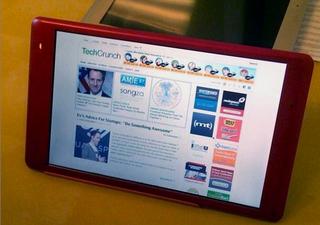I confess. I am a Googlephile. Right now on my desktop, I have Gmail, Google Reader, Google Docs and Google Calendar open in separate tabs on my Chrome browser.
I know that every keystroke inputted into Google is saved and stored. For now, it’s all rather innocuous. Mostly work e-mails, calendar entries of kids parties and dentist appointments, etc. Rather than be worried about this, I’m willingly participating in Google’s effort to learn even more about me. I have an Android phone that tracks my whereabouts, lets me check e-mail, rss feeds, calendar etc.
But link what Google knows about me to what Google knows about you and what it seeks to know about the world and you have a massive project. As Daniel Soar points out in the London Review of Books, Google’s efforts at rolling out new ways to create data is creating an increasingly smarter, more intiutive, perhaps essential, information behemoth:
Google is getting cleverer precisely because it is so big. If it’s cut down to size then what will happen to everything it knows? That’s the conundrum. It’s clearly wrong for all the information in all the world’s books to be in the sole possession of a single company. It’s clearly not ideal that only one company in the world can, with increasing accuracy, translate text between 506 different pairs of languages. On the other hand, if Google doesn’t do these things, who will?

The broader question about Google is whether private surveilance is inherently less nefarious and intrusive than state-based public surveilance? After all, Google doesn’t have an army. In addition, Google still needs to respond to customer demands. Last year, Google acquiecsed to the German public’s privacy concerns by allowing users to “opt out” their home addresses of it’s street view application.
The bigger issues comes from Government seeking access to Google’s repository of data. The public and the private are then in danger of becoming blurred. Google makes it’s interaction with government agencies public via it’s transparency report. But what happens when the state, with its monopoly of force, wants access to Google’s data?

 On the UC Berkeley campus, the
On the UC Berkeley campus, the  Last spring, Mark C. Taylor
Last spring, Mark C. Taylor 